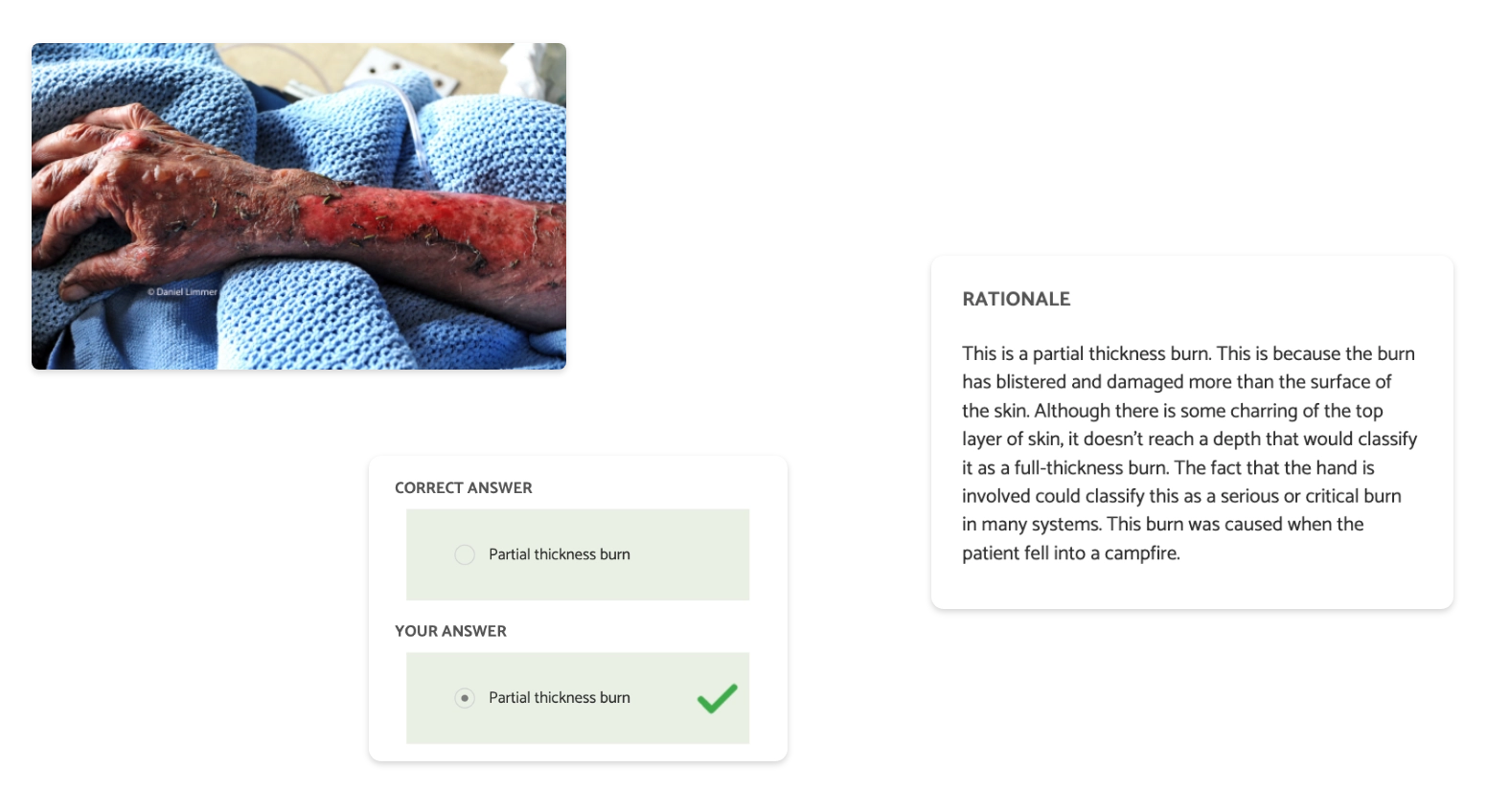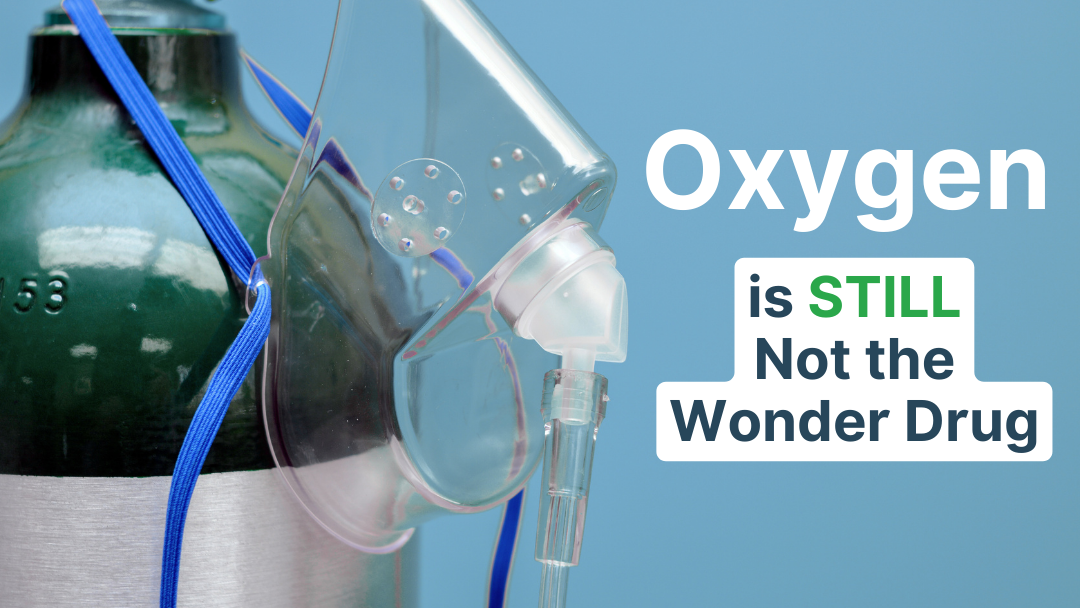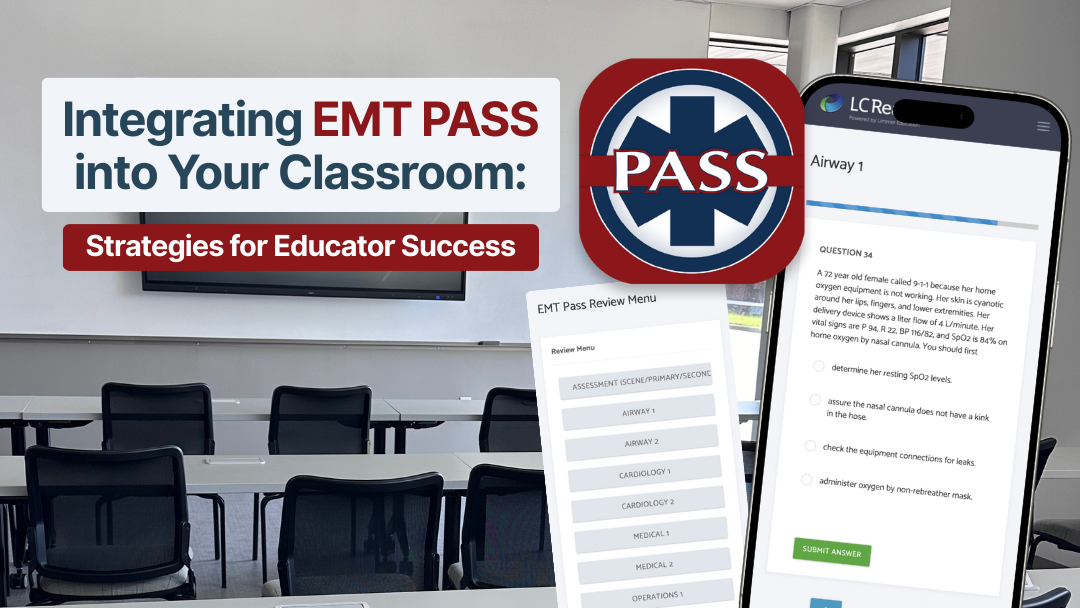

Trusted Education for the Future of EMS
NREMT prep and classroom solutions that build better providers.
The Limmer Advantage








Made by NREMT Experts
Clinical Depth
From Class to Field and Beyond




NREMT Success
Help students succeed on their exams. Our apps focus on critical thinking, pattern recognition and pathophysiology.
Get startedAfter using your products and learning how to attack and understand questions I felt more confident than ever. The material you offer is amazing! It helped me to finally pass my NREMT! – Trevor D.
Educator Tools
We’re here to help you create a more dynamic, inspiring, and productive classroom.
Get startedI recommend Limmer resources to all my students. The pass rates are much higher and students have shown to be more efficient and effective in the field as a result. – Scott Stephens
Knowledge & Application
Our NREMT remediation courses help users pass… and give them relevant, deep understanding. 24-hr. EMT / 36-hr. AEMT
Get startedMy saving grace! I completed your online remediation and went in to take my third attempt and passed! Thank you!! – Sidney F.
CAPCE Approved
The 7 Things EMS podcast provides fluff-free, boredom-free CE for a variety of topics, from education to toxicology.
Get startedThank you for this podcast. I have learned so much and love that I can get CE for listening. – Julie R.

Find Your Match
We have a wide variety of apps for all different stages of your EMS education.
Use our product finderFrom our EMS Articles
Loved by EMS Students, Educators and Institutions
-
-
You guys have the absolute BEST customer service!
Cindy W.EMT-P Dept. Head -
I have been working on the ambulance for 20 years. I had to retake the NREMT exam because I let it lapse. I received my passing results a few hours ago. Paramedic PASS really helped me get in the right mindset to take the test.
Scott TurnmireParamedic
-
-
-
I failed the NREMT 3 times, so I decided to purchase the remedial training and watching his videos and taking the practice test on each topic 3 times really help me understand the concepts and what to look out for in the NREMT test... Limmer Ed is the real deal. I passed on my 4th attempt.
David R.EMT -
I learned so much and believe [EMTReview.com] is the reason I passed. I bought another app and... got yours thinking what the heck, can't hurt to study more, your app blew the other one away. Thank you Thank you Thank you! Please post this review all over your site, God Bless you and the work you do.
D.EMT
-
-
-
I passed! I am officially a Paramedic. I credit much of this success to [ParamedicReview.com]. This program teaches you how to study. Thank you again for your help over these past few weeks.
Austin McGonagleParamedic -
I love your products. I downloaded the EMT PASS app and passed on the first try. Your questions and test taking strategies have great value to us active learners!
Brad IllingEMT
-




